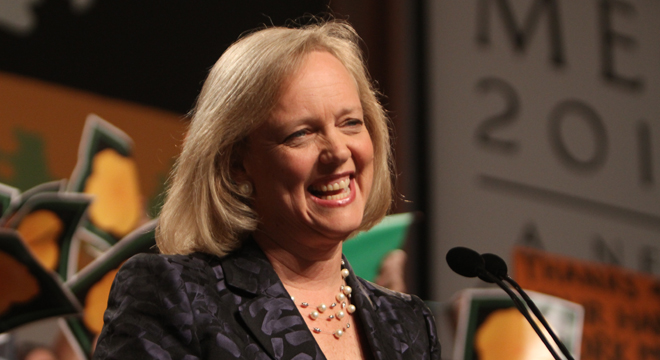On Tuesday night, HP held an “all-hands” meeting hosted by new CEO Meg Whitman in which she admitted the company is still wringing its hands over what to do with WebOS, the mobile operating system it had acquired along with device maker Palm for $1.2 billion in 2010, The Verge reported.
Just hours earlier, Reuters reported that HP was looking to sell WebOS to a number of interested buyers, including Amazon, Research in Motion (RIM), IBM, Oracle and Intel.
Seeking to soothe yet another drastic transition at HP (and there have been many of late, between the announcements that the company was “discontinu[ing] operations” for WebOS, acquiring Autonomy Corp. for $10 billion, and firing CEO Leo Apothecker), Whitman told employees gathered at the meeting that no sale of WebOS had been greenlit — yet. But, she said that a decision would likely come within the next three to four weeks.
“It’s really important to me to make the right decision, not the fast decision,” about the fate of the neglected operating system, Whitman said, The Verge reported.
Whitman added that HP was still considering keeping WebOS, saying “it’s a very expensive proposition, but HP can make that bet.” She also revealed a wealth of information in a few short statements about just what HP’s overall outlook is, saying that the focus of WebOS, if kept at HP, would be on tablets because “things get more complicated if you add in phones.”
That announcement is symbolically heartbreaking for the hundreds of WebOS engineers, thousands of developers, and millions of customers who enjoyed Palm smartphones, including the popular Palm Pre, which drew lines of customers when it was released in 2009, well before HP purchased the company.
But betting on tablets wouldn’t exactly be a curveball given how well HP’s WebOS TouchPad tablet sold when the price was slashed by nearly 200 percent, from an original $499 to $99, following the August 18 announcement from the company that it was shuttering the WebOS division and was considering spinning off its PC business entirely.
While HP in October decidedly pulled back from that latter announcement, saying it is now keeping the PC division (Personal Systems Group), the unresolved WebOS matter remains an enormous question mark.
There are good reasons on both sides for why HP should sell or continue to invest in the WebOS platform, mainly related to controlling costs and determining the future direction of the company, such as whether or not it can compete in tablets with more established market leaders such as Apple, RIM and Microsoft.
But the WebOS indecision could be by design, as some tech bloggers have speculated that HP is merely trying to delay the sale to drum up a higher offer: Right now, WebOS is reportedly going for somewhere in the range of hundreds of millions of dollars, according to Reuters a significant bargain given the $1.2 billion that HP paid for it.
HP declined to comment on the all-hands meeting, saying it doesn’t comment on internal company meetings.









